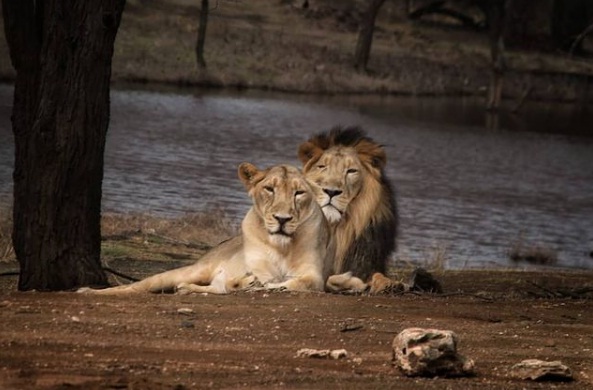Mexico
Mexico has a fascinating history, rich culture, and diverse attractions. Here's a more detailed exploration of Mexico's history, culture, and some additional attractions:
History:
Pre-Columbian civilizations: Mexico is known for its ancient civilizations, including the Olmecs, Maya, Zapotecs, Mixtecs, and Aztecs. These civilizations thrived before the arrival of Europeans and left behind impressive ruins, intricate artwork, and significant contributions to science, mathematics, and astronomy.
Spanish colonization: Mexico was colonized by the Spanish in the 16th century. The colonization led to the blending of European and indigenous cultures, resulting in a unique cultural identity that is prevalent in modern-day Mexico.
Independence and post-colonial era: Mexico gained independence from Spain in 1821. The country experienced political instability, foreign invasions, and territorial losses in the 19th century. The Mexican Revolution from 1910 to 1920 aimed to address social and economic inequalities, leading to significant political and social changes.
Modern Mexico: Today, Mexico is a democratic republic with a diverse society and a growing economy. It embraces its indigenous heritage while also incorporating influences from Spanish, African, and other immigrant cultures.
Culture:
Cuisine: Mexican cuisine is renowned worldwide for its vibrant flavors, use of chili peppers, corn-based dishes such as tortillas and tamales, and iconic dishes like tacos, enchiladas, and mole sauce. UNESCO has recognized Mexican cuisine as an Intangible Cultural Heritage of Humanity.
Art and crafts: Mexico has a rich tradition of art and crafts, including pottery, weaving, embroidery, and painting. The country is famous for its vibrant folk art, intricate Talavera pottery, and the renowned works of artists like Frida Kahlo and Diego Rivera.
Festivals: Mexico is known for its colorful and lively festivals that blend indigenous and Spanish traditions. These include Dia de los Muertos (Day of the Dead), a celebration honoring deceased loved ones; Las Posadas, a Christmas tradition; and Guelaguetza, a cultural festival showcasing traditional dances and costumes.
Mexico has a rich and diverse history that spans thousands of years. Here's an overview of Mexico's history, along with some interesting facts and attractions:
Facts:
- Mexico is the 11th most populous country in the world and the third largest in the Americas, after the United States and Brazil.
- Mexico City, the capital of Mexico, is one of the largest cities in the world and is known for its historic sites, museums, and cultural events.
- Mexico is home to 35 UNESCO World Heritage sites, including the ancient city of Teotihuacan, the historic center of Mexico City, and the pre-Hispanic city of Chichen Itza.
- Mexican cuisine is recognized as an Intangible Cultural Heritage by UNESCO. It is renowned for its diverse flavors, incorporating ingredients such as corn, chili peppers, beans, avocados, and chocolate.
- Mexico is known for its vibrant festivals and traditions, including Dia de los Muertos (Day of the Dead), a celebration honoring deceased loved ones, and Cinco de Mayo, which commemorates the Mexican victory over French forces in the Battle of Puebla.
Attractions:
Guanajuato: This colonial city is known for its colorful architecture, narrow streets, and vibrant cultural scene. It is home to the famous Callejón del Beso (Alley of the Kiss), beautiful plazas, and the impressive Teatro Juarez.
Oaxaca: Located in southern Mexico, Oaxaca offers a mix of colonial charm and indigenous traditions. The city is known for its well-preserved historic center, ancient Zapotec ruins of Monte Alban, delicious cuisine, and traditional arts and crafts.
Copper Canyon (Barranca del Cobre): This stunning network of canyons in the Sierra Madre Occidental mountain range is larger and deeper than the Grand Canyon. It offers breathtaking views, hiking trails, and the opportunity to experience the culture of the indigenous Tarahumara people.
Mexico City: The capital city is a vibrant metropolis with a rich history and diverse attractions. Highlights include the ancient Aztec site of Templo Mayor, the National Museum of Anthropology, the historic center with its Zocalo square, and the floating gardens of Xochimilco.
Yucatan Peninsula: The Yucatan Peninsula offers not only Cancun and the Riviera Maya but also other attractions. Explore the colonial charm of Merida, swim in the stunning cenotes (natural sinkholes), visit the ancient Maya city of Uxmal, and enjoy the beautiful beaches of Tulum.
Mexico's history, culture, and attractions are incredibly diverse and offer a multitude of experiences for travelers. Whether you're interested in ancient ruins, vibrant cities, traditional festivals, or delicious cuisine, Mexico has something to offer for every visitor.





0 Comments